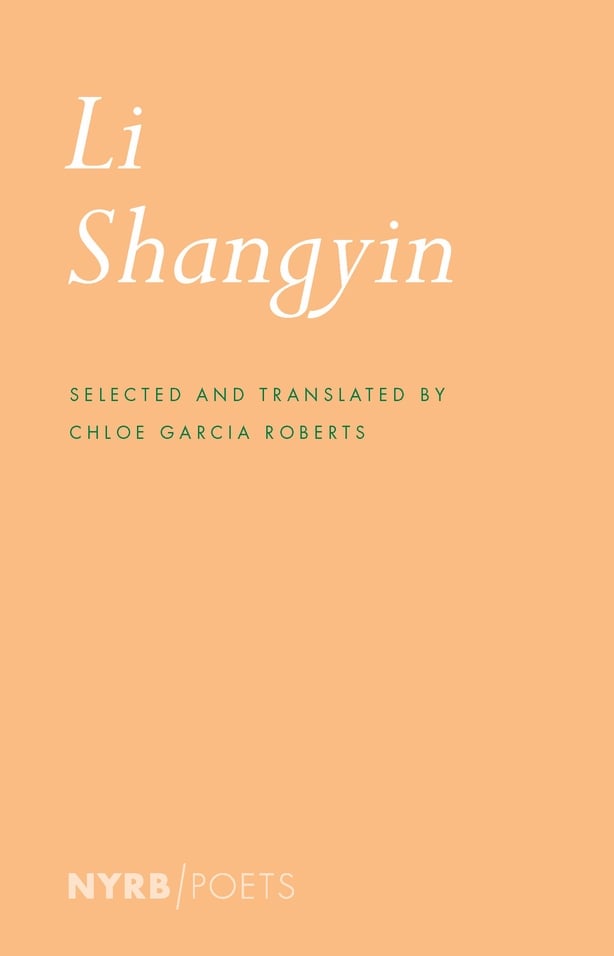Li Shangyin (c 813-858) was recognised as one of the most important poets of the late-Tang era - this new compact selection of the poet's work shimmers with his subtly elusive imagery.
"Written in accreting layers of historical recounting, smears of memories, and remnants of an imagistic language for which the code has been lost, Li’s poetry is elusive to the core, " writes editor Chloe Garcia Roberts in her introduction to this 155-page selection from the copious verses of the poet Li Shangyin (c 813-858). This handy, portable book features the poems in their original Classical Chinese with English translations on facing pages.
Garcia Roberts writes of Li’s `unique disruptions of time, reality, and physicality.’ It fell to one Yang Yi (974-1020) to conduct an exhaustive search throughout the empire to gather as much of the work as possible following the poet's death. Indeed his assiduousness resulted in 300 extra poems being added to the extant 100. An estimated 600 poems by the poet are now known to exist.
As to the life, Li had a varied career after failing the civil service examinations several times. At one time or another he was county sheriff, a classics professor, collator in the Imperial Library and assessor for the commissioner of salt and iron. Married in his late twenties, he was the father of two children, a boy and a girl. He was widowed relatively early and the loss of his wife is the focal and indeed profoundly wistful point of much of the verses. The poet became a Buddhist, sometime in mid-career, and died at the age of 45.

Writer Ling Qichao (1873-1929) was as baffled as he was charmed by these verses from Li Shangyin which have been translated here by Chloe Garcia Roberts, with additional translations by Lucas Klein and AC Graham.
"What Li Shangyin’s poems are about I cannot determine, " wrote Ling Qichao. "I cannot even explain the literal meaning line by line. Yet I feel they are beautiful, and when I read them, they give me a new kind of pleasure in my mind."
Some of the poems have extremely long titles, like the resonant After the Banquet at River Hall Disperses, I Return to the Residence Along a Willow Road and Chanting, rendered in four verses of four lines each. It would evokes the sense of futility that all poets can feel at times - a different futility from the kind felt by people who write best-sellers, perhaps.
Yet the poem enfolds within its light wickerwork a sense of awe. Already undone/By the river reflecting willows. More so/ By plum trees hidden in snow.
The poem concludes on a rueful note in which the poet appears to question the value of what he does in writing, how the product of his craft proves strangely truculent, curiously unmoved, perhaps even seeming inanimate, despite his huge personal investment in the creative act.
From poetry,/ What atonement? One just feels the white hairs/ Hastening.
Watch a short interview below with translator Chloe Garcia Roberts







